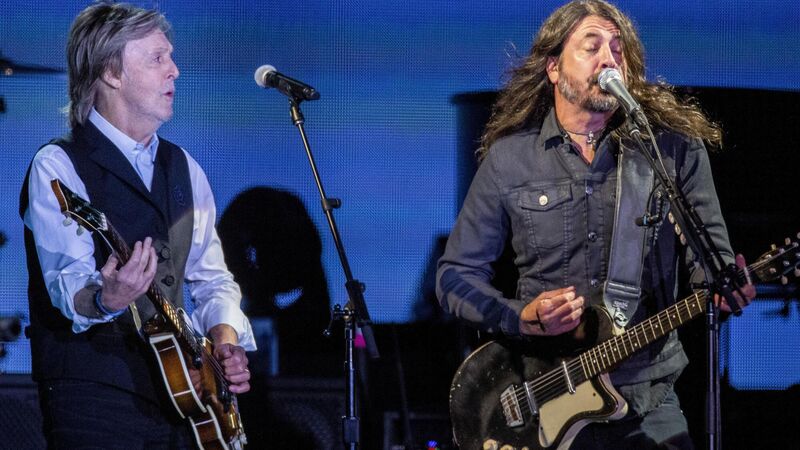Terry Prone: Anthony Fauci, Ken Auletta, and Paul McCartney show us what 80 can look like

Paul McCartney allowed up-and-coming rocker Dave Grohl (53) perform alongside him at the Glastonbury Festival in Somerset, England, last month. Picture: Joel C Ryan/Invision/AP
You have to love Anthony Fauci’s indecisiveness at the moment, if only because it’s so out of kilter with how clear he was during the pandemic. In the last week, Fauci, the man who faced down Trump on the latter’s headbanging theories about the coronavirus, started dithering and backtracking. Not about the virus. About his own retirement.
First, he told Politico that retiring around the time Joe Biden finished his first term as US president would be a good thing.












